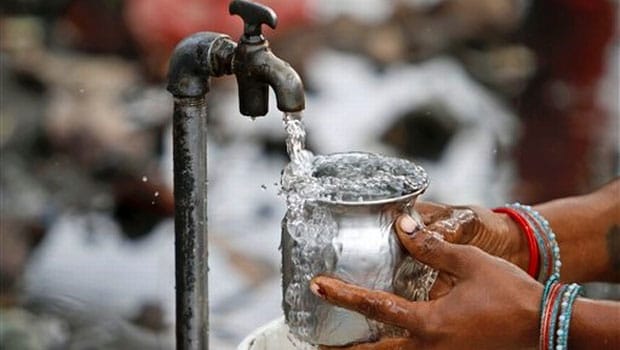The government of Kenya through the Ministry of Water, Sanitation and Irrigation has intensified efforts to secure universal water security through major water, sanitation and irrigation projects including policy.
According to Cabinet Secretary, Ministry of Water, Sanitation and Irrigation, Sicily K. Kariuki, the current level of access in Kenya is estimated at a national average of 64% for water, 26% for sanitation in urban areas with non-revenue water at 41% and the annual water per capita is less than 500 cubic metres, making the country a severe water stress according to the UN global scale on water security which stipulates minimum of 1000 cubic metres per person per year.
“To address this situation, the government through this Ministry is undertaking major water, sanitation and irrigation projects including policy, governance and legal interventions to increase water storage, improve sanitation and food security in the country,” she said.
“Furthermore, the Ministry has developed National Water Policy, which has received Cabinet approval. The key policy direction includes progressive realization of universal access to water, management, conservation and protection of water resources; rehabilitation of riparian and catchment areas in order to eliminate pollution of water bodies. The policy also emphasizes on comprehensive sector financing and investment between the county and national governments. Further the Ministry has developed Water and Sanitation Strategy, Water Resources Management Strategy and Water Harvesting and Storage Strategy, which are aimed at actualizing the policy and improving water service provision in the country,” she added.
The CS also said that, as the country endeavors to achieve the right to clean and safe water in adequate quantities, there is need to recognize that water resources in Kenya are not evenly distributed. Inter basin transfers of water is therefore very important and it can be achieved while addressing conflicts that inevitably arises from competing users through effective public participation and prudent sharing of the water resources to equally benefit all.
Also Read: US partners with Mozambique on US $90m water and sanitation programs
Boosting water security in Kenya
According to CS Kariuki, the Constitution of Kenya 2010 in Article 43 (1), (b), (c), (d) guarantees reasonable standard of sanitation, freedom from hunger and safe water in adequate quantities. In this regard, the Government continues to implement key projects across the country. Some of these are; Nairobi Northern Collector Tunnel Water Supply project to boost available water to Nairobi City residents by 140,000 m3/day, Thwake dam which will supply150,000m3 per day, Narok sewerage, Olkalau sewerage in Nyandarua, Marsabit sewerage and Mandera sewerage, Oyugis and Kendu bay water projects, Mavoko Drinking Water Supply project targeting to reach 1.5 million people in the area with clean water, Vihiga Cluster Water supply project to increase water by 12,500m3/day to serve Maseno, Mbale and Kaimosi, Homa Bay Cluster Water project to supply 9,000m3/day of water to serve 120,000 people in Homa Bay Town and environs and Chemususu dam Water Project to supply 6,000m3/day to Eldama Ravine, Mogotio and parts of Nakuru.
Others include Kenya Towns Water and Sanitation Project increasing access to 28 towns across the country and Water and Sanitation Development Program being implemented in six counties namely; Mombasa, Wajir, Garissa, Kwale, Kilifi and Taita Taveta. Currently the Government is implementing 685 Water, Sanitation and Irrigation projects, key among these are sanitation projects in Nairobi, Mombasa and Kisumu which are being implemented on the sites which were illegally allocated but have since been recovered projects spread across the country.

Leave a Reply